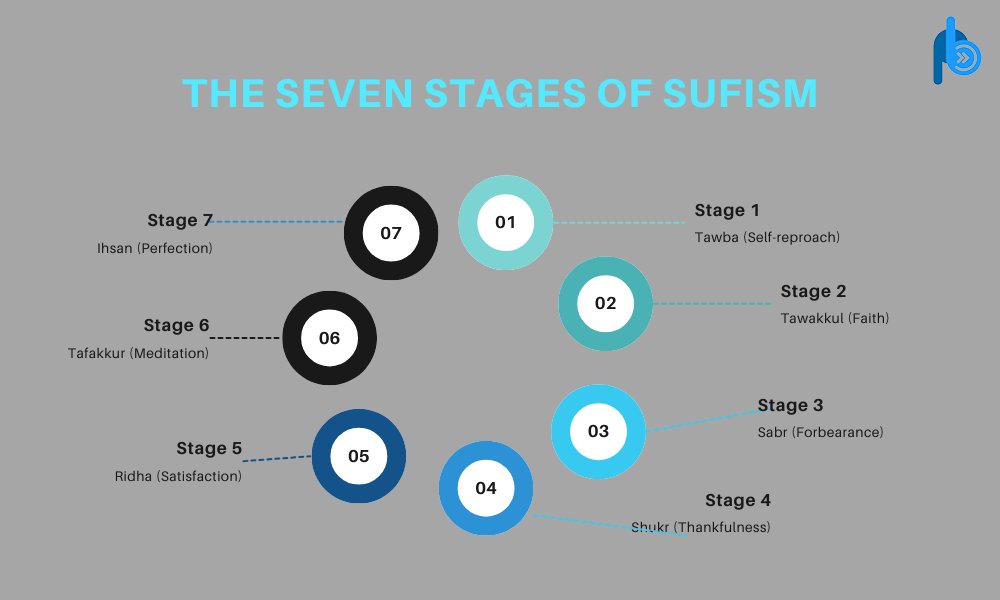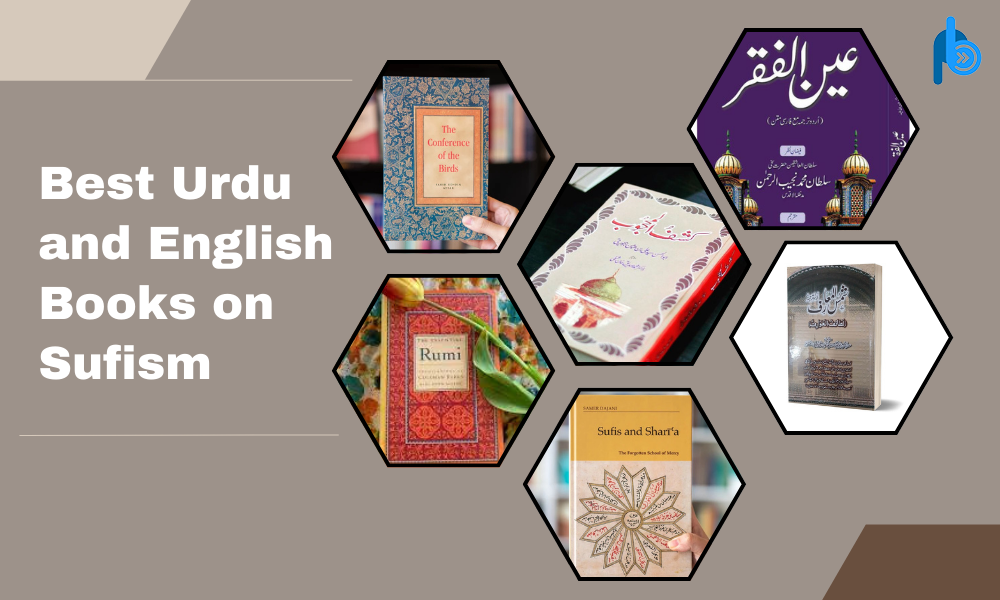Introduction of Sufism,
Sufism, widely known as the mystical dimension of Islam, grants an esoteric tour into the incorporeal heart of the doctrine. Deep-rooted in the instructions of the Quran and the Hadith, Sufism searches into the enigmatic faces of Islam, concentrating on innermost cleaning, unselfishness, and the quest for divine love. In this analysis of Islamic values and traditions, we dig into the core of Sufism, its origins, core concepts, and its importance in Pakistani society.
Origin and Rise of Sufism
The beginnings of Sufism can be dated back to the initial days of Islam, rising as a reaction to the philistinism and mundanity that started to dominate the divine nature of the faith. The name “Sufi” is considered to be derived from the Arabic word “suf,” which means woollen, embodying the straightforward and temperate lifestyle cherished by earlier Sufis.
Sufism blossomed throughout the Islamic world, with major contributions from eminent sages such as Rumi, Al-Ghazali, and Ibn Arabi. It achieved energy throughout the Abbasid Caliphate, as Sufi orders (Tariqas) moulded to offer leadership and devotional guidance to searchers.
Concept of Love in Sufism
Primary to Sufism is the conception of love, especially divine love (Ishq-e-Haqiqi). Sufis consider that the supreme objective of mortal existence is to reach association with the Divine by means of love and dedication. This notion pinpoints its origins in the Quranic verse: “And those who are believers are fervent in their love for Allah” (Quran 2:165).
In Sufi writings, love is commonly illustrated as the motive force behind the adventurer’s trip toward the Almighty. With poems, melody, and contemplation, Sufis show their yearning for the Beloved, surpassing the borders of the physical universe to encounter mystical ecstasy.
The Seven Stages of Sufism

Sufism outlines a divine path comprising seven milestones (Maqamat) that an aspirant must cross to secure divine enlightenment. These levels are:
- Tawba (Self-reproach): The first stage includes self-reproach and avoidance from temporal diversions in the direction of the Almighty.
- Tawakkul (Faith): Trustful in Divine judgement and giving up one’s wish to His holy guide.
- Sabr (Forbearance): Cultivating forbearance and endurance in the front of hardships and adversities on the mystical journey.
- Shukr (Thankfulness): Expressing thanksgiving for God’s benevolence and acknowledging His existence in every facet of life.
- Ridha (Satisfaction): Achieving innermost satisfaction and serenity by aligning one’s hopes with the determination of the Almighty.
- Tafakkur (Meditation): Fascinating in intense meditation and thoughtfulness to achieve awareness of the secrets of life.
- Ihsan (Perfection): Attaining a state of spiritual perfection described by benevolence, sympathy, and love for all origination.
Sufism in the Light of the Quran and Hadith
Conflicting some misunderstandings, Sufism is strongly aground the instructions of the Quran and the Hadith. The Koranic emphasis on the refinement of the soul (Tazkiyah) and the remembrance of the Almighty (Dhikr) forms the foundation of the Sufi tradition.
Several Hadiths also stress the significance of Sufi merits such as humbleness, forbearance, and love, which are essential to Sufi principles. The Prophet Muhammad (peace be upon him) himself manifested qualities of humbleness, compassion, and separation from mundane occupancy, which are reflected in Sufi guidance.
Best Urdu and English Books on Sufism

For those enthusiastic to dig depth into the domain of Sufism, an abundance of writings is at hand in both Urdu and English. Some of the best Urdu books on Sufism contain classics such as:
- “Kashf-ul-Mahjoob” by Data Ganj Bakhsh
- “Shams-ul-Maarif” by Hazrat Baba Tajuddin Nagpuri
- “Ain-ul-Faqr” by Hazrat Sultan Bahoo
In English, applicants can study discerning workings such as:
- “The Essential Rumi” translated by Coleman Barks
- “The Conference of the Birds” by Farid ud-Din Attar
- “The Sufis” by Idries Shah
These accounts provide deep intuitions into Sufi doctrine, rhyme, and exercise, helping as valuable pilots for divine petitioners on their travel.
Conclusion
In the finale, Sufism encompasses the core of Islamic spiritualism, presenting a road of love, affection, and inward metamorphosis. Deep-rooted in the Quran and the Hadith, Sufism persists to excite searchers throughout Pakistan and outside, directing them into the consciousness of their real natures and cosmic consciousness. By means of its mysterious practices, Sufism remains a lamp of light, enlightening the souls of devotees and searchers likewise.
More Relatable Blogs from this Author:




























